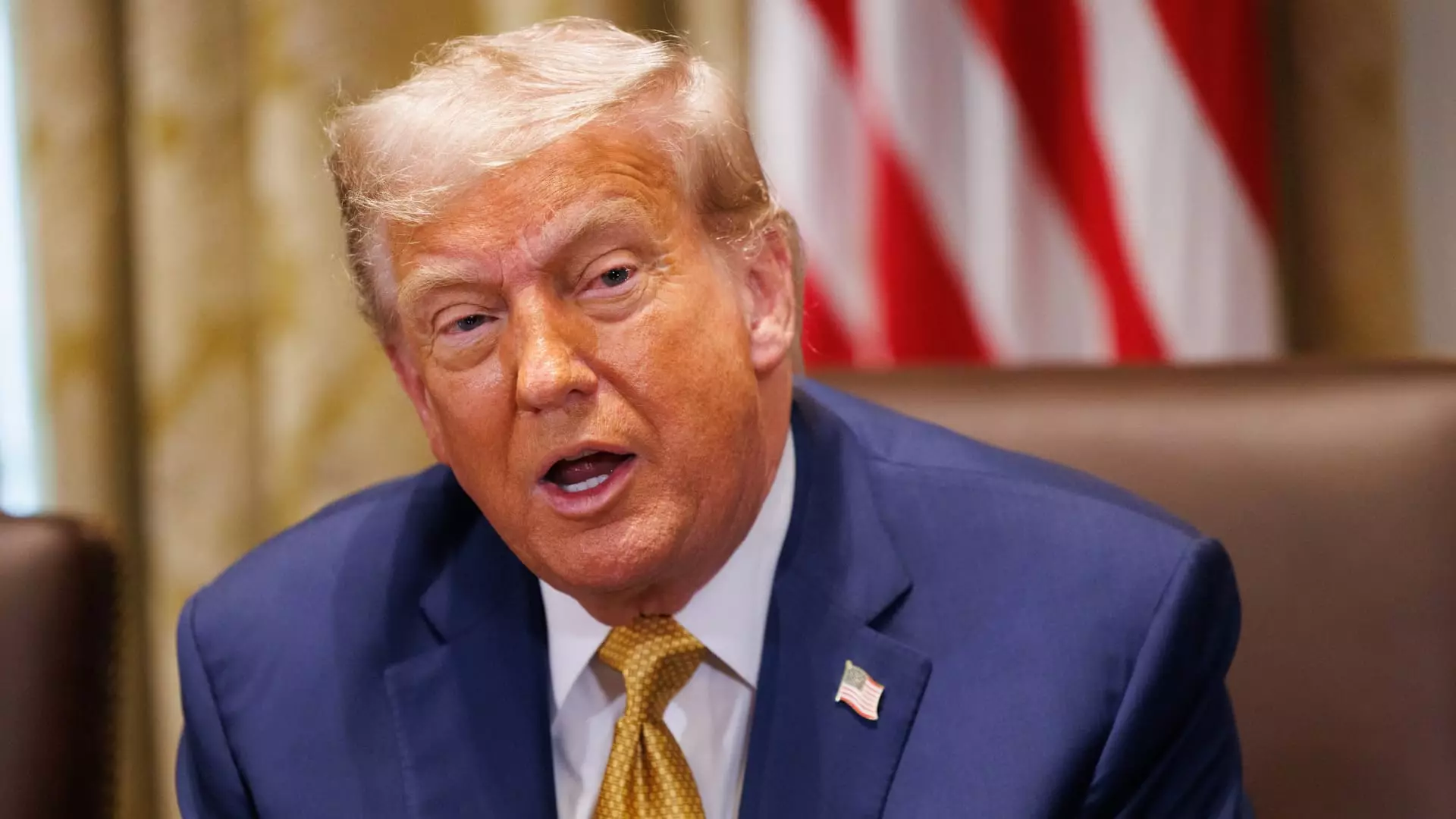In recent comments, President Donald Trump signaled a move that could radically reshape the American pharmaceutical industry: the imposition of tariffs up to 200% on imported drugs. While their intention might be rooted in economic nationalism—aiming to stimulate domestic manufacturing—the approach is fundamentally flawed. Heavy tariffs have long been associated with protectionist policies that can distort markets, inflate consumer costs, and ultimately harm the very industry they aim to bolster. Such drastic measures, if implemented, risk turning what could be a strategic advantage into a dangerous economic liability.
One cannot ignore the inconsistency and unpredictability which have marred previous trade proposals from the Trump administration. A tariff of this magnitude, announced without clear implementation timelines and subject to change, resembles more a political bluster than a carefully crafted policy. Implementing a 200% tariff with a long grace period—up to 18 months—appears to be a tactic to pressure drug manufacturers into relocating manufacturing back home. But at what cost? It reveals a shortsighted belief that tariffs alone can solve deeper structural issues in U.S. pharmaceutical manufacturing, without regard for global supply chains, R&D investments, or patient access.
The Illusion of Economic Self-Sufficiency
The Trump administration’s rhetoric suggests that tariffs will compel pharmaceutical companies to bring production to the United States. On paper, this sounds promising—more domestic jobs, less reliance on foreign supply chains, and potentially greater control over critical health supplies. However, this perspective heavily underestimates the complexities of pharmaceutical manufacturing, which involves sophisticated, high-investment infrastructure that cannot be easily or swiftly relocated.
Furthermore, the claim that tariffs will catalyze a seismic shift toward self-sufficiency neglects the globalized nature of the pharmaceutical industry. Many drugs and ingredients are manufactured in countries with comparative advantages—China, India, and others—that have built extensive manufacturing ecosystems. Disrupting this delicate balance risks creating shortages, increasing costs for consumers, and slowing down the development and distribution of new medicines.
What’s more troubling is that such tariffs could serve as a barrier to innovation. When drug companies face increased costs and uncertainties, especially within a heavily regulated environment, they may divert R&D funds or shelve promising drugs. Instead of fostering innovation and attracting investment, protectionist tariffs could entrench inefficiencies and stifle competition.
Market Realities versus Political Posturing
Financial markets have so far reacted with indifference—pharmaceutical stocks remained largely unchanged following Trump’s comments, indicating skepticism about the policy’s imminent implementation or impact. Analysts like David Risinger suggest that the uncertainty surrounding tariffs makes them less harmful in the short term, but their long-term effects could be damaging if eventually enacted.
The industry’s response has been predictably cautious: The Biotechnology industry’s largest lobbying group, PhRMA, expressed concerns that tariffs increase costs and divert resources from R&D efforts. Their stance underscores a fundamental truth: Protectionism may provide temporary psychological reassurance but often undermines the broader economic interests of innovation, affordability, and supply chain robustness.
President Trump’s repeated threats and inconsistent policies reveal a tendency toward impulsive decision-making rather than strategic economic planning. Rather than fostering a sustainable environment for American pharmaceutical leadership, such threats risk alienating key stakeholders—drug companies, patients, and global partners. It’s a dangerous game that, if played recklessly, could jeopardize U.S. health security and global competitiveness.
A Toxic Mix of Nationalism and Short-term Gains
Ultimately, heavy tariffs on pharmaceuticals are a misguided attempt at economic revival. They are rooted in a simplistic view that trade barriers alone can rectify industry decline, ignoring the nuanced realities of global manufacturing, technological innovation, and health security. While protecting jobs and domestic industries is valid, it must be pursued through thoughtful policies that balance economic, strategic, and scientific considerations—not through emergency tariffs driven by populist rhetoric.
This approach risks sowing confusion and damage in a sector vital to national well-being. In the long run, a smarter, more nuanced strategy—one that incentivizes innovation, investments in domestic R&D, and supportive trade policies—would serve better than reckless threats of punitive tariffs. The danger lies not in the tariffs themselves but in the folly of their sudden, unpredictable threat, which could do far more harm than any potential benefit.

